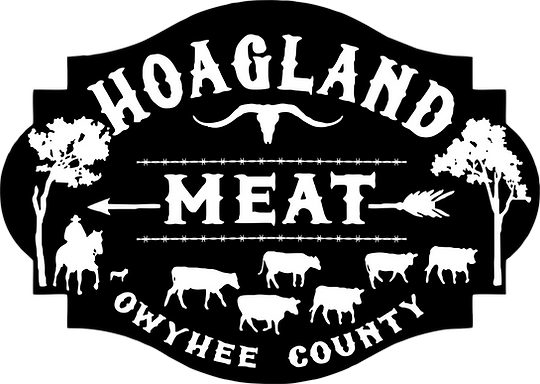The state of agriculture today, and the meat industry, includes a lot of large national and international food producers, packagers, distributors, and retailers. Sometimes, this Industrial food complex creates some economies of scale that benefit us all, but at Hoagland Meat we believe that those benefits are heavily outweighed by the tremendous benefits of buying local whenever possible. We are not the only ones who believe this. There’s a growing movement that is commit. to buying local whenever possible. Consider the following benefits:
1. Get the Freshest Product:
Food preservation has changed humanity for the better, but we all know there is nothing like the taste, quality, and health impacts of fresh food. The Farm-to-Fork movement has been primarily driven by something we all know: The freshest food is produced locally. Ask yourself, “Would I rather eat fresh food that came directly from local producers, or food that has been trucked, flown, shipped, and stored all over the world?”
2. Feel More Secure:
Local food production helps to prevent the spread of disease and contamination. Disease, contamination, environmental pollutant, and genetic modifications can travel quickly through the industrial food complex. The more steps there are between you and your food’s source the more chances there are of contamination. When it comes to food security, source verification is fundamental. There is a unique kind of assurance that comes from looking a farmer or rancher in the eye or driving by the fields where your food comes from. Local farmers and ranchers aren`t anonymous and they take their responsibility to the consumer seriously. You must ask a particularly important question, “Do I know where my food comes from?”
3. Support the Local Economy:
When you buy meat that has never left our area, you contribute tremendously to our local economy. Local ranchers, owners and employees of local processors and packagers, local distributors and sales reps, and local retailers and restaurants, and their employees make all their profit. But they then spend their profits in our community, making us all wealthier. The money you spend locally comes back to you! Contrast that with meat and other food production in the industrial food complex. National and international companies take their cut. Processors and packagers in other states siphon money into their pockets. Shippers of all kinds take their cut, and so on. In the end, little of the money you spend with them stays in our local economy and comes back to you. Ask yourself, “Do I want my money to benefit my local community, or some large corporations that spend very little in my community?”
4. Eat Better: The Highest Quality, Health, and Taste:
Meat becomes unhealthy or lower quality as corners are cut to meet the demands and the prices of the industrial food complex. High volume with low margins becomes the name of the game. To compete, growth cycles are cut down using hormones, steroids, and even genetic modification! Antibiotics and pesticides are used with increasing frequency to minimize loss to disease. To save money, more is produced on less land, lowering the quality and taste of the meat, and leading to inhumane practices. We could go on with more problems that you already know about. Contrast that with beef and other foods that are produced and sold locally. Beef that is grass-fed, humanely, and naturally raised, and processed and delivered locally produces some of the highest quality meat you can eat. It is healthier and tastes better! Ask yourself, “If I can eat higher quality, healthier, better tasting food, am I willing to make the commitment to only buy local?”
5. Improve the Environment:
In today’s industrial food complex the average head of beef travels 1500 miles! The fossil fuel consumption and carbon emissions alone are an environmental problem. Pesticides and chemicals are introduced into the environment at greater rates by the industrial food complex, and soil depletion and water pollution are major problems. Not to mention the massive amounts of waste and the environmental impacts produced by the largest processing plants and factories. Factory farming is not a friend of the environment. Meanwhile, local ranchers and farmers do a lot better job of maintaining the soil, water, and health of the environment on their land. Ask yourself, “Do I want to contribute to the pollution that the industrial food complex produces?”
6. Preserve a Way of Life:
As larger companies seek more profits, the squeeze is on family ranchers and farmers. The amounts that can be earned on each head of cattle have gotten so low in the factory farming system that many local ranchers are not able to survive. This is all done in the name of the consumer who just wants a lower price, but the reality is that when you buy locally, you pay about the same as when you buy from the industrial food complex. The difference is that you have cut out the middlemen. The rancher and farmer make more money. That money stays in the local community, and an entire way of life is preserved. Ask yourself, “What am I willing to do to preserve family farms and ranches, and preserve a way of life that has built America?”

